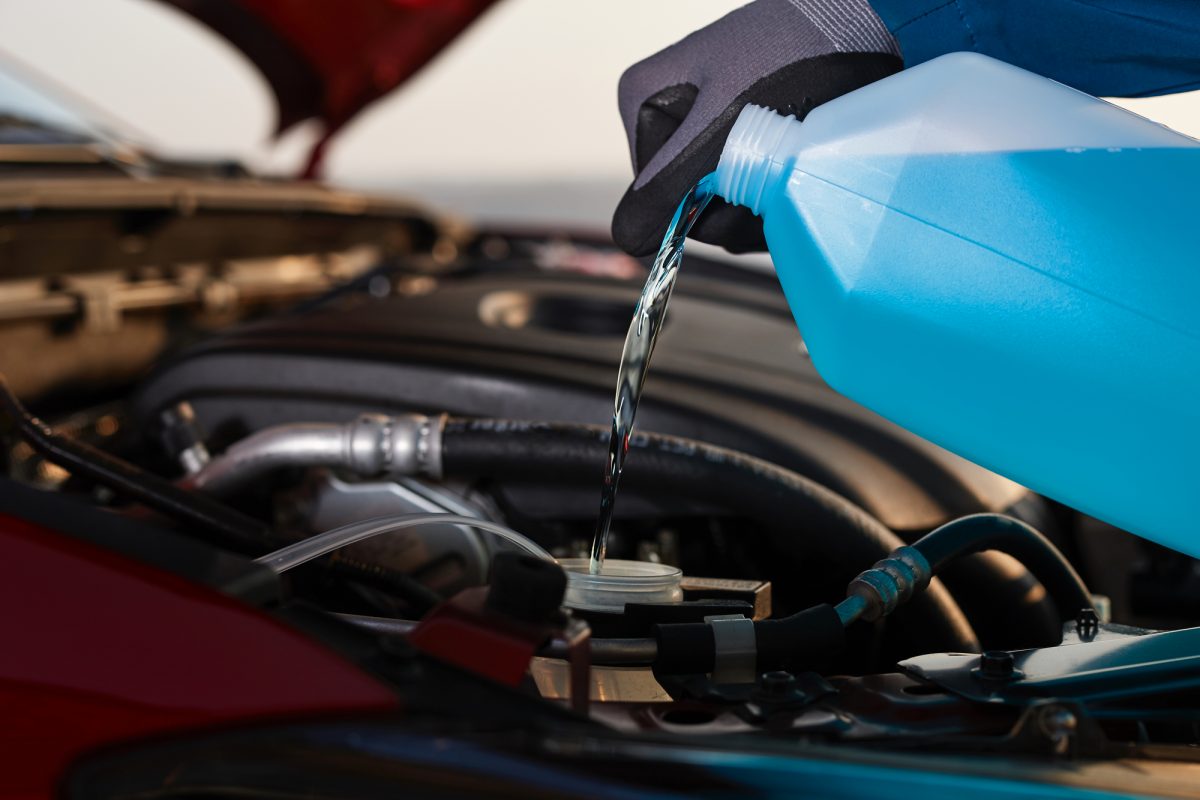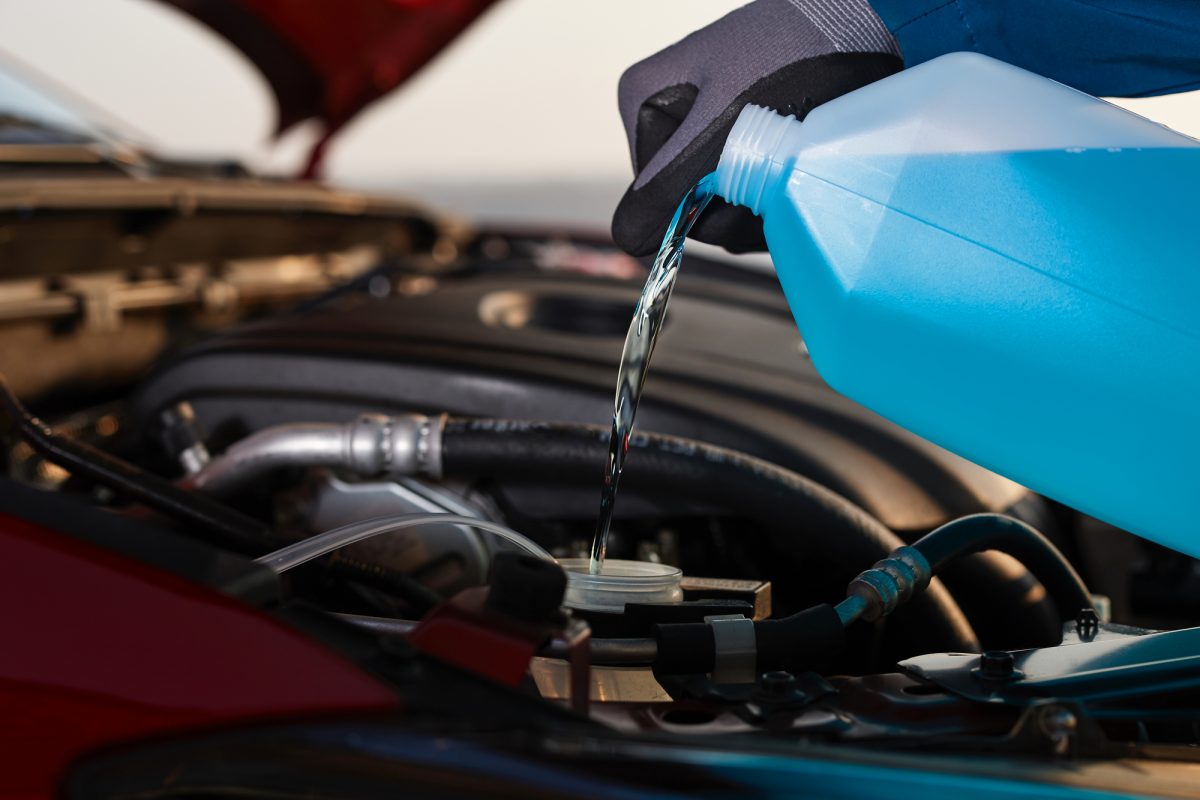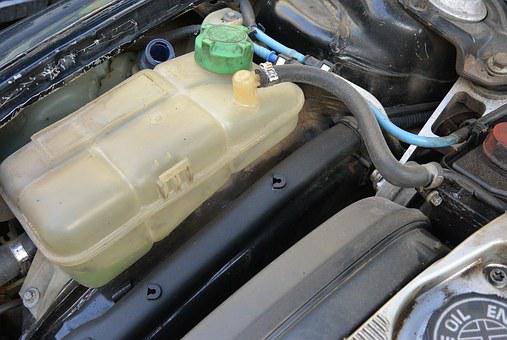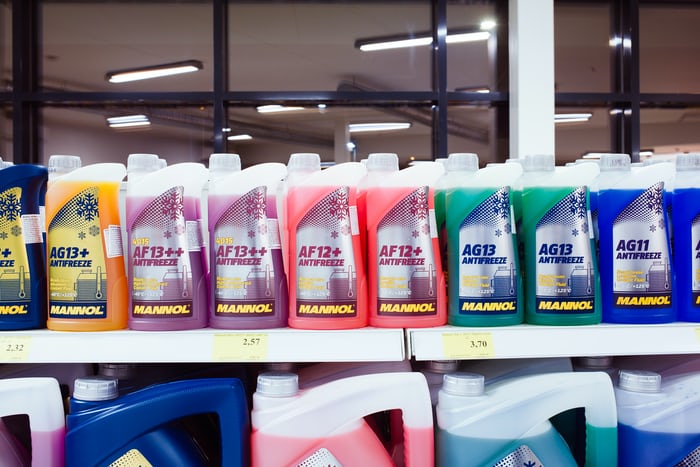Have you ever faced or experience issues related to engine coolant? The antifreeze plays an essential role in maintaining and controlling the vehicle’s temperature and thus, prevents overheating of the engine. In this article, we will discuss in detail specific points indicating and telling how to dispose of antifreeze must be performed to minimize the harmful effects. We’ll also elaborate on some frequently asked questions by the readers to simplify their problems. We hope you’ll get all the answers to the questions you are searching for by the end of the content.
So, let’s begin with the topic and attain perfection in the content to provide safe and harmless disposal of engine coolant.
Table of Contents
What Is Antifreeze In Vehicles?
 Antifreeze is also referred to as an engine coolant. It is a coloured liquid that is mixed with water to help regulate your engine during extreme temperatures. As the temperature in the outer environment changes from hot to cold, coolant is pumped throughout the engine block to maintain an even operating temperature.
Antifreeze is also referred to as an engine coolant. It is a coloured liquid that is mixed with water to help regulate your engine during extreme temperatures. As the temperature in the outer environment changes from hot to cold, coolant is pumped throughout the engine block to maintain an even operating temperature.
Coolant helps to pull heat away from the engine. Thus, lacking antifreeze may lead to engine overheating or seizing up. Continued use of an overheated engine could result in permanent damage to certain parts of vehicles, such as piston welding to the cylinders.
How To Dispose Of Antifreeze?
Antifreeze or car coolants need to dispose of properly and timely with all the necessary precautions. Otherwise, it may lead to severe issues and damage to the environment. Safe disposal regarding the car coolant must be the priority for all the drivers and owners of the vehicle.
So, to understand better the disposal process, let’s discuss some of the safe and easiest ways to deal with the situation.
1. Check To See Whether Your Antifreeze Is Diluted Or Undiluted
 It is the most common and first step that must consider before the disposal of any car coolant. In this, you need to check whether the antifreeze is used, diluted and unused/undiluted, as the procedure for all types of disposals is different.
It is the most common and first step that must consider before the disposal of any car coolant. In this, you need to check whether the antifreeze is used, diluted and unused/undiluted, as the procedure for all types of disposals is different.
The antifreeze used and diluted may contain heavy metals that are pretty unsafe; therefore needs to handle separately and carefully. On the other hand, unused antifreeze is usually considered less hazardous as compared to used ones.
2. Use A Large Drain Pan To Flush Coolant From the Car
 Before beginning with this step, we recommend you wear or put on gloves. It would help you to prevent the antifreeze from making direct contact with your skin. Now, place a drain pan underneath the car’s drain plugs to collect the antifreeze for safe disposal.
Before beginning with this step, we recommend you wear or put on gloves. It would help you to prevent the antifreeze from making direct contact with your skin. Now, place a drain pan underneath the car’s drain plugs to collect the antifreeze for safe disposal.
Please be careful while choosing the drain pan as a sizeable container will help to ensure that the antifreeze collects without a spill.
3. Transfer The Coolant To a Safe, Sealable Container
The antifreeze needs to be packaged safely on the way to the disposal facility. To avoid spills or any other leaking issues, using a large sealed container is the correct choice.
4. Disposal Of Antifreeze
 The next step is to search the place for disposing of the antifreeze. For this, you can visit several service stations, recycling centres and auto parts shops that will help to get rid of antifreeze, and they are considered the safest means of disposal.
The next step is to search the place for disposing of the antifreeze. For this, you can visit several service stations, recycling centres and auto parts shops that will help to get rid of antifreeze, and they are considered the safest means of disposal.
As mentioned earlier, the used and diluted antifreeze have a different disposal requirement from unused and undiluted antifreeze; therefore, remember to keep this point in mind while performing disposal. Take permission and ask the facility you have chosen whether they accept the type of antifreeze you want to get rid of or not.
5. Never Pour Your Antifreeze Down The Drain
Whenever you dispose of antifreeze or coolant, never pour it down the drain or outside on the ground. Since this liquid is toxic and unsafe, thus it can cause harm to people and animals that may come in contact with it if poured wrongly or improperly.
We hope these tips help you in knowing the best ways of antifreeze disposal. They would also guide and ensure that your interaction with antifreeze is safe.
Is It Normal To Refill My Antifreeze Frequently?
Usually, it is not considered normal for vehicles. After all, no car uses coolant at such a high speed. If you find yourself needing the coolant level regularly, then probably there is a leak. To know the correct answer regarding the issue, keep an eye on the ground you usually park to check for stains or any leaks.
If you found it, visit the professional and get the fixation done as soon as possible.
Is Antifreeze Hazardous Waste?
To a certain level, yes, it is dangerous if not disposed of properly and carefully. The antifreeze will consider hazardous waste if mixed with harmful chemicals and waste like gasoline. Thus, proper disposal in a sealed container would help you in dealing with such issues.
However, regular servicing and maintenance of the vehicle will reduce all such cases. As indeed said, precautions are better than cures.
Does Antifreeze Evaporates?
In most vehicles, people observe it, but the exact science behind it is pretty different. Most cars will lose a little coolant overdue to evaporation from the reservoir of the vehicle. Usually, a substantial loss of coolant for a short period indicates a leak in the car or a radiator cap that is not holding enough pressure.
Frequently Asked Questions:
So, here are some of the frequently asked questions about how do I dispose of antifreeze near me, can you pour antifreeze down the drain,how long does antifreeze down drain etc?-
How Do I Dispose Of Antifreeze Near Me?
For finding information on where to find an antifreeze recycling location near you go to you can watch sight www.Earth911.com. Transmission fluid: see that you use if it can be mixed with used oil for recycling.
Can You Pour Antifreeze Down Drain?
Do not pour your waste antifreeze , outside on the ground. Take your old, or tainted antifreeze to a local recycling center, or auto parts shop.
What Is The Proper Way To Get Rid Of Antifreeze?
Proper way to get rid of Antifreeze-
- Check to see whether your antifreeze is used, or unused.
- Use a large drain pan to flush coolant.
- Transfer the coolant to a safer
- Dispose of your antifreeze at a service station.
How Long Does Antifreeze Stay In The Ground?
Ethylene glycol can also enter the environment Ethylene glycol in air will break down till 10 days. Ethylene glycol in the soil will break down within several days to a few weeks.
How Do You Dispose Of Oil And Antifreeze?
Antifreeze has been contaminated with fluids like Transmission fluid. If this has happened to you, you should reach out to your city or location to see if they will dispose of it properly.
Conclusion
We hope the information mentioned above helps and guide you in dealing with the issues related to the matter. We also expect that by the end of the topic, you know how to dispose of antifreeze. However, the regular servicing of the vehicle will significantly reduce the issues related to the antifreeze.
If your doubts or queries regarding the matter continue, please comment below in the comment section. And we will try to make extreme efforts in answering all your questions as quickly as possible.



